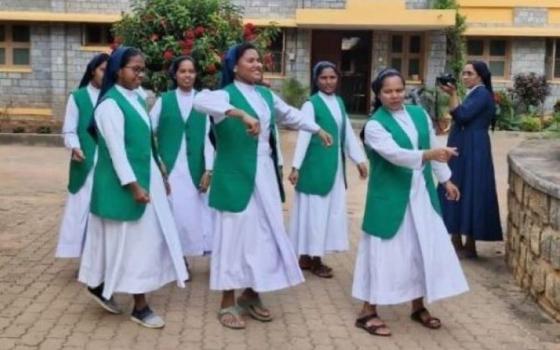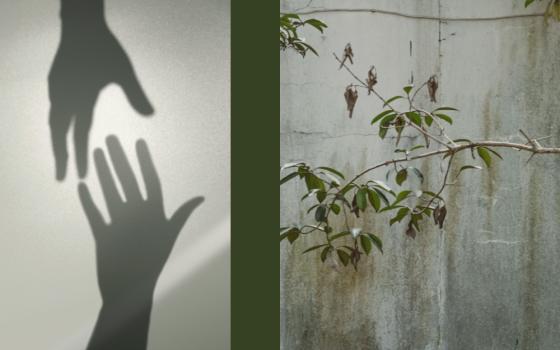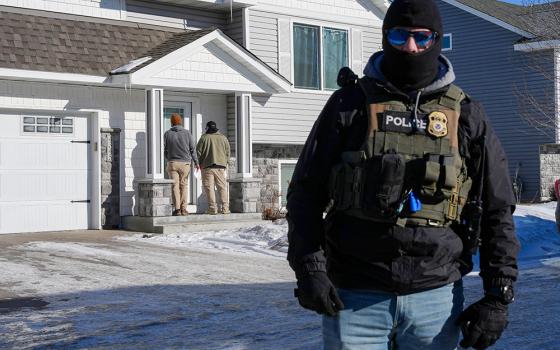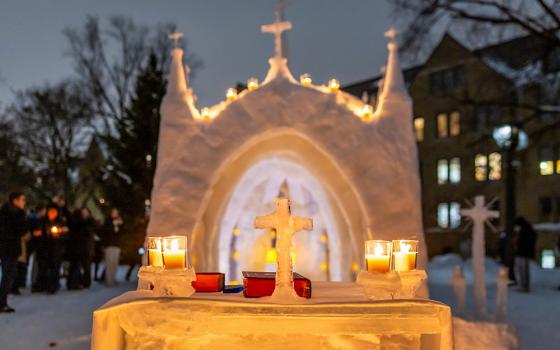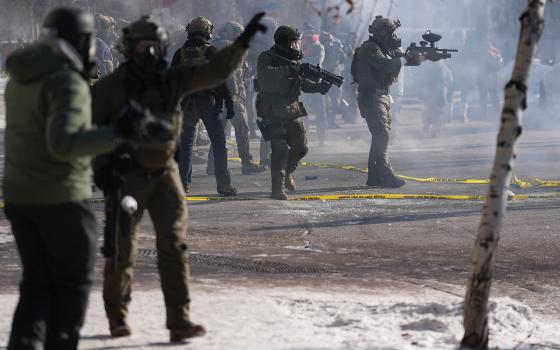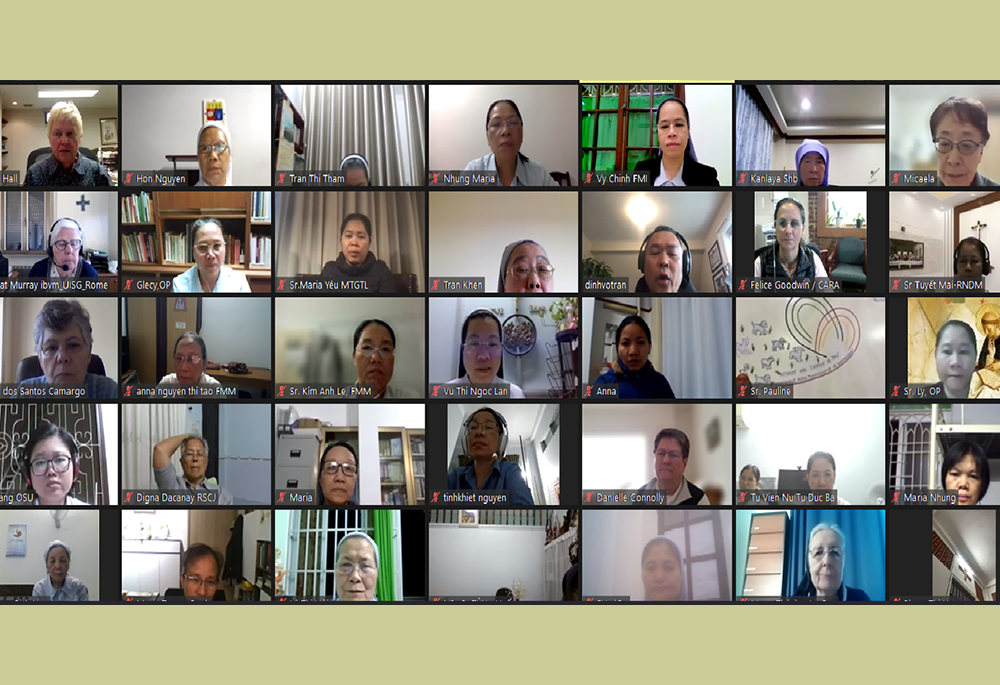
Participants in a March webinar, organized by the Center for Applied Research in the Apostolate in the U.S., the Conference of Major Superiors in Vietnam, and the International Union of Superiors General in Rome, aimed to discuss religious life in Vietnam and possible ways to support Vietnamese nuns. (Screenshot/Joachim Pham)
A great number of sisters in Vietnam are at a working age and need more ongoing formation to maintain their ministries, according to speakers at an online webinar.
The webinar, organized by the Center for Applied Research in the Apostolate (or CARA) in the United States, the Conference of Major Superiors in Vietnam (or CMSV) and the International Union of Superiors General (or UISG) in Rome, aimed to discuss the status of religious life in Vietnam and find possible ways to support Vietnamese nuns.
The March 20 event attracted 230 participants, many from Vietnam.
Lovers of the Holy Cross Sr. Mary Thu Do, one of four speakers, said while there has been a sharp decline in the number of religious women in Western countries, women's congregations in Vietnam "enjoy a large number of young members who are actively engaged in various ministries."
She said Vietnam had some 25,000 nuns in 2020, "an encouraging number in a country of 90 million people." The number of nuns compared with Catholics increased from 10 in 1995 to 35 in 2020 for every 10,000 Catholics.
She said CARA undertook a national survey on women religious in Vietnam, from which the Conrad N. Hilton Foundation could initiate projects to deal with their situations effectively. (Conrad N. Hilton Foundation is a major funder of Global Sisters Report.)
Superiors from 69 out of 116 women's institutes and some 3,000 nuns took part in the survey.
Do, a research associate at CARA, said two-thirds of the congregations have more than 100 members, meaning that they are able to exist and develop in a long time.
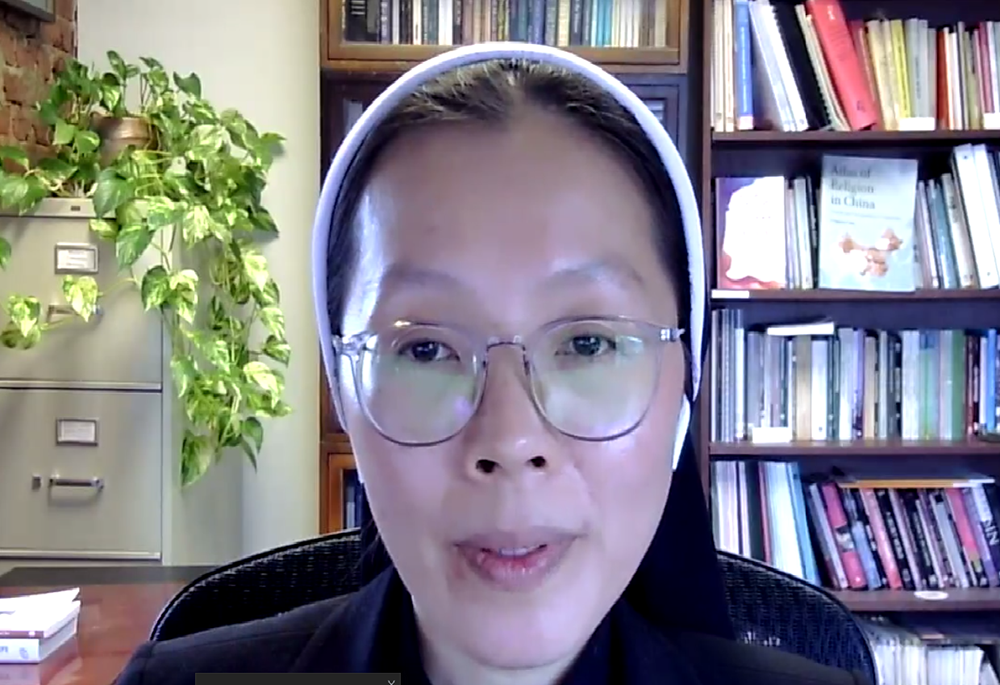
Lovers of the Holy Cross Sr. Mary Thu Do, a research associate for Center for Applied Research in the Apostolate, speaks in a webinar on the status of religious life in Vietnam. (Screenshot/Joachim Pham)
"Vietnamese nuns' average age is 39, which is suitable for taking active part in ministries," she said.
She said that only 10% of the nuns in Vietnam are 70 and above compared to 80% in the United States, 39% in Mexico and 21% in India.
The survey data found that the institutes still attract many young women. In 2021, 74% of them received at least two postulants and 12% admitted one newcomer.
As a result, Do said, "most congregations have great need for ongoing formation for their formators and are able to send their members to take formation courses held in the country and abroad."
The research results revealed that the respondents find it helpful for them to attend community leadership courses and to collaborate with other institutes on formation and ministry.
Advertisement
They want to further train in liturgy, theology, pastoral care, catechesis, psychology, leadership, spiritual direction, communication, interpersonal skills, technology and foreign languages.
Two-thirds of the respondents take part in preschool education, evangelization and parish ministry, and the rest are involved in health care, leadership, social work and serving people in need.
The institutes are concerned about financial issues since 70% of them do not receive financial compensation for their members' services.
Eighty percent of the nuns' average monthly income is under $234 and the rest receive $235-430 per month. Their average salaries are lower than the average monthly salary of citizens at $275.
The research findings showed that looking after sisters' mental and physical health is one of the institutes' main challenges since nuns are given heavy workloads. They are concerned about their health problems — from chronic illness, tiredness and weight issues to stress, depression and loneliness.
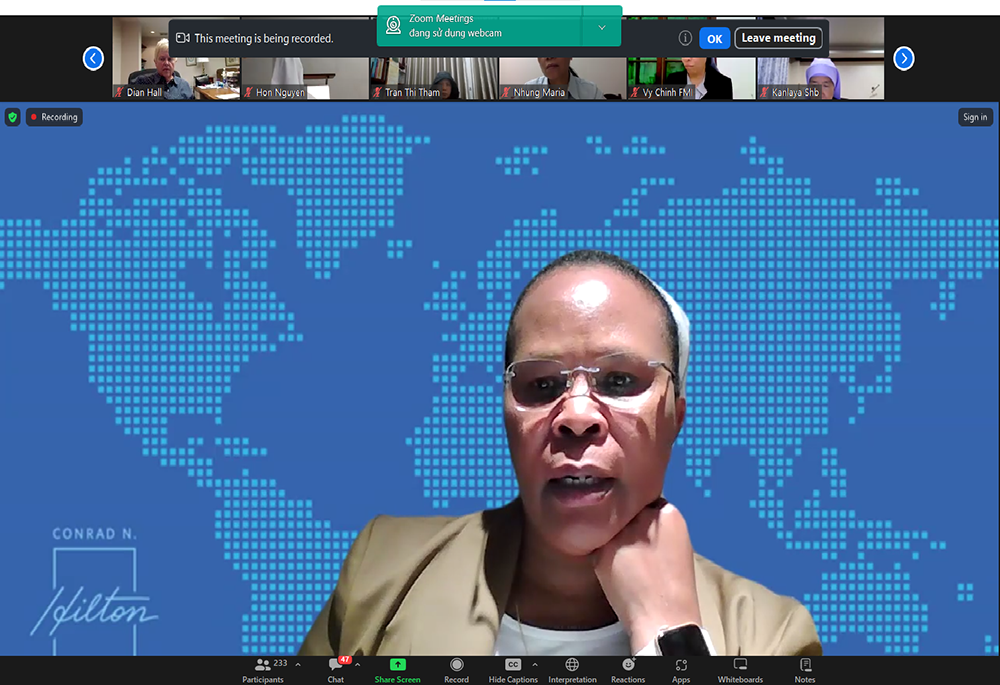
Little Sisters of St. Francis Sr. Jane Wakahiu, who serves as the associate vice president, program operations and head of Catholic Sisters at the Conrad N. Hilton Foundation, speaks in a webinar on the status of religious life in Vietnam. (Screenshot/Joachim Pham)
Little Sisters of St. Francis Sr. Jane Wakahiu, who serves as the associate vice president, program operations and head of Catholic Sisters at the Conrad N. Hilton Foundation, said, "The outcome of this study helps us to understand the situation of the sisters in a particular country and together we determine the best ways to invest in support of sisters' formation, care or education."
"We hope to invest in ongoing formation as well as in elderly care into the future as the research demonstrated this need," Wakahiu said.
The Kenyan nun said the foundation supports sisters through networks of conferences to ensure many sisters can benefit, learn from each other's experiences and continue to strengthen programs.
"We could also fund a program for directors for formation to be prepared logically and psychologically in order to go back to their formation houses," Wakahiu said.
Sr. Patricia Murray, UISG's executive director, told participants about UISG's aims and how it could support sisters in the Southeast Asian country in light of the survey.
"We run many programs on synodality on the vows, discernment, intercultural competence, leadership, canon law, self-care, and how to welcome new members. And we also have a very special project for younger sisters who have studied theology to Ph.D. level and they are forming a network," Murray said.
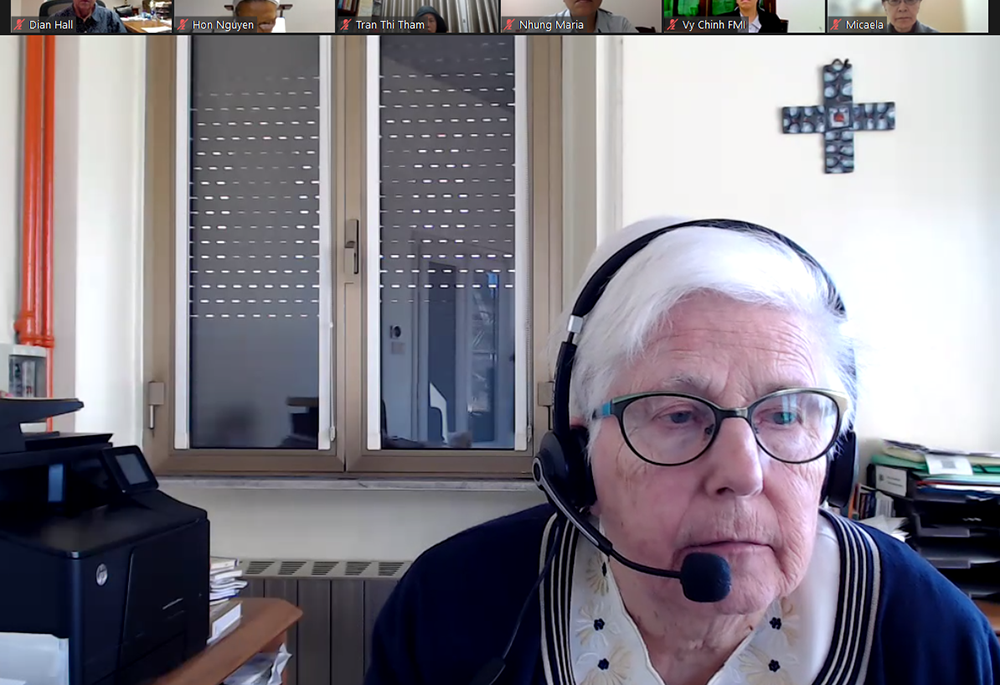
Institute of the Blessed Virgin Mary Sr. Patricia Murray, executive director of the International Union of Superiors General, participates in a webinar on the status of religious life in Vietnam. (Screenshot/Joachim Pham)
The Institute of the Blessed Virgin Mary sister said UISG intends to provide training materials in Vietnamese in the future so that sisters can teach themselves. It will also provide some scholarships for Vietnamese sisters to study in Rome.
Sr. Maria Ly Thi Bich Quyen, CMSV's vice president, said 205 institutes — 69 male institutes and 136 female institutes — joined CMSV since it was established in 2012. Some other 100 institutes have not joined the conference for their own reasons.
"Vietnamese sisters are active in their ministries and charitable work and overloaded with their work so they have little sabbatical. They have little opportunity to attend sabbatical courses abroad as they are limited to foreign languages," Bich Quyen said.
The Our Lady of the Missions nun said local institutes could not afford to hold sabbatical courses lasting 3-6 months for their members.
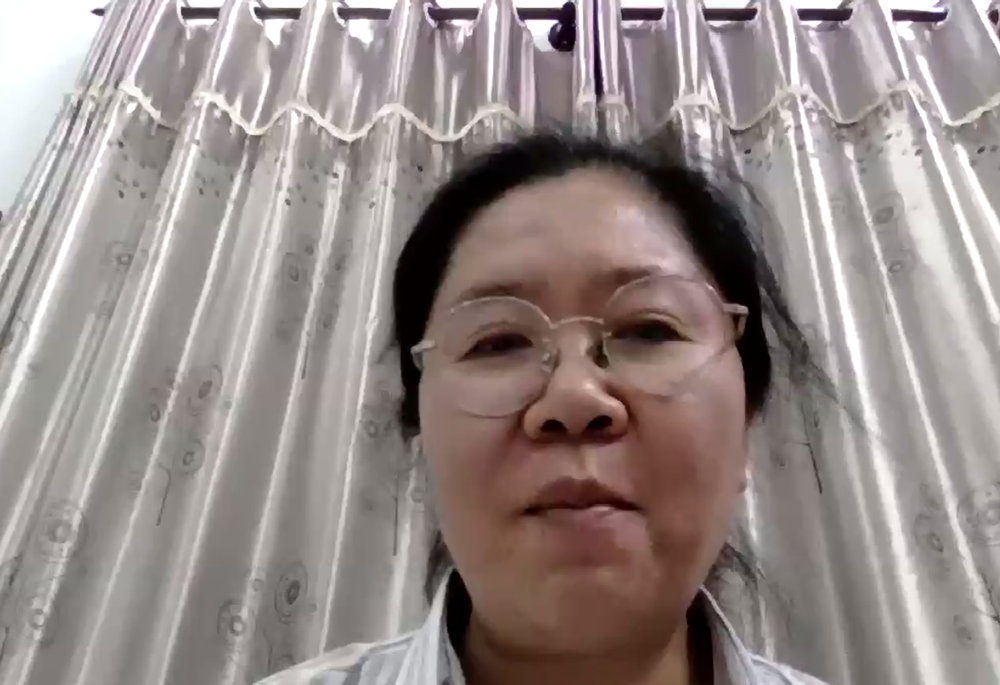
Our Lady of the Missions Sr. Maria Ly Thi Bich Quyen, vice president of the Conference of Major Superiors in Vietnam, participates in a webinar on the status of religious life in Vietnam. (Screenshot/Joachim Pham)
She said the conference helps some congregations to complete procedures to be officially recognized by the government, gives seminars on canon law, leadership and evangelization to local superiors and their congregations.
She said she opened a bank account for CMSV to receive financial support from foreign organizations. CMSV will work closely with Conrad N. Hilton Foundation and UISG to support Vietnamese sisters.
Lovers of the Holy Cross Sr. Mary Nguyen in the Mekong Delta said she works at a parish of some 1,000 members on her own since her congregation does not have enough sisters to send help.
"I look after the church, pull the bell, arrange flowers, hold prayers, teach catechism to students, take charge of choirs, play the organ in services, and do other things," the nun, who asked to be called by her family name, told GSR.
Nguyen said she daily serves two Masses at the church and is paid two million dong ($80) per month by the parish priest. She does not have time to take vacations and visit her relatives.
The nun, who suffers from stress, weariness and depression, said over 20 other sisters are in the same situation as hers.
After being told about the webinar, she said, "That is good news. If we are well trained, we will control our religious life, find joy in our services and work effectively."
